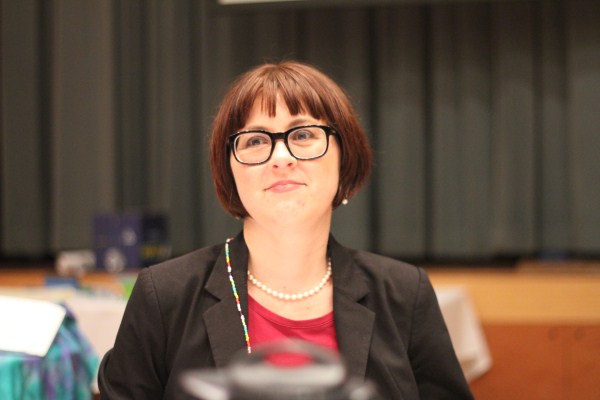
Australia’s bishops should consider making an apology for hurt and discrimination suffered by women, the director of a bishops-funded agency for women told a national conference, earlier this month.
Donella Johnston, the director of the Office for the Participation of Women, made the comment in an address to the 46th biennial Catholic Women’s League conference in Townsville (September 2-5), organised by the current holders of the CWL’s roaming secretariat.
Ms Johnston said that although she had had “a very positive experience with clergy”, she wondered if an apology would be a way to “move forward”.
“I wonder if contrition and apology would be something that the hierarchy might like to think about,” Ms Johnston said, “contrition and apology for the hurt that women have felt over the years”.
“We had a national apology for the Stolen Generation in 2007 and that really healed a lot of the hurt in the Church and when I travel around Australia and I talk to women who are the mothers and grandmothers of victims of sexual abuse; women who have been excluded just for being a woman in parish life; I’m surprised that there is still quite a lot of hurt there,” Ms Johnston said.
The mooted idea of an apology was one of seven Ms Johnston nominated for encouraging young women’s participation in the life of the Church, labelling the “wooing” of young Generation X and Y women “the biggest challenge” the Church will face in the future.
“Many if not most Catholic women just see an institution that rates them as second class,” Ms Johnston said, quoting from an article in Time magazine on the dearth of female religious vocations in the US.
“Women aren’t in parishes to be exploited,” Ms Johnston said. “This is from young women I have spoken to.
“Don’t start asking the same person to do the same jobs because after a while you start to feel used.
“Another young woman said ‘we just won’t put up with it’. So we should be encouraging young women to be leaders and not just auxiliary functionaries.”
Ms Johnston said that the Church urgently needed to embrace “inclusive language” – an approach which favours the use of non-gendered terms, such as ‘people’ instead of ‘men’.
She provided a practical example from the time of her own adolescence in the language used by her then-parish priest.
“He didn’t ask for altar boys, he asked for altar servers. He used inclusive language; this is the early 1980s. I can’t tell you how important it is to use inclusive language. We use inclusive language in all our schools, in all our government documents.
“We must start using inclusive language in the Church if we want to make the Church more relevant,” Ms Johnston said.
Her presentation took an even more personal turn when she spoke about her own journey of faith, speaking about not going to Mass during her 20s and what brought her back into active Catholic life.
Moving to Japan in 1988, Ms Johnston said Mass was not a readily available option but that she never lost contact with God, praying at a local Buddhist temple.
A book written by the Dalai Lama gave her reason to consider Catholicism anew in her late 20s.
“The Dalai Lama had been asked do you need to become a Buddhist to be happy… ‘No, you don’t need to be a Buddhist to be happy. What I would advise anyone to do would be to go back to the religion of your nativity, your childhood, and you will find in that religion – whatever that faith is – everything that you need to be happy, to lead a good, fulfilled life’ and I thought to myself, ‘wow, I’ll give Catholicism, I’ll give Christianity another go.”
Study at the Australian Catholic University followed in 1998, partly sponsored by her local Catholic education office.
Ms Johnston said reading the lives of the saints and theological study were invaluable in her return to the Catholic faith.
“I think if I had probably just relied on going to Mass for that I probably wouldn’t have found what I needed, just by going to Mass.
“I had to read about other people’s experience with falling in love with Christ.”
In one of her address’s lighter moments, Ms Johnston mused on the reaction of her family, living and deceased, to her taking up her current position as the director of an agency funded by the Australian Catholic Bishops Conference:
“I wonder what Dad would think of me working in this role. My bosses are the Australian Catholic bishops and I report to the Bishop of Wollongong, Bishop Peter Ingham, and I wonder what he would think of his daughter, I don’t know, trying to promote women.
“I guess it’s the oldest old boys’ club in the world isn’t it [laughs]… Mum’s quite bemused by it and my brothers as well”, Ms Johnston said.